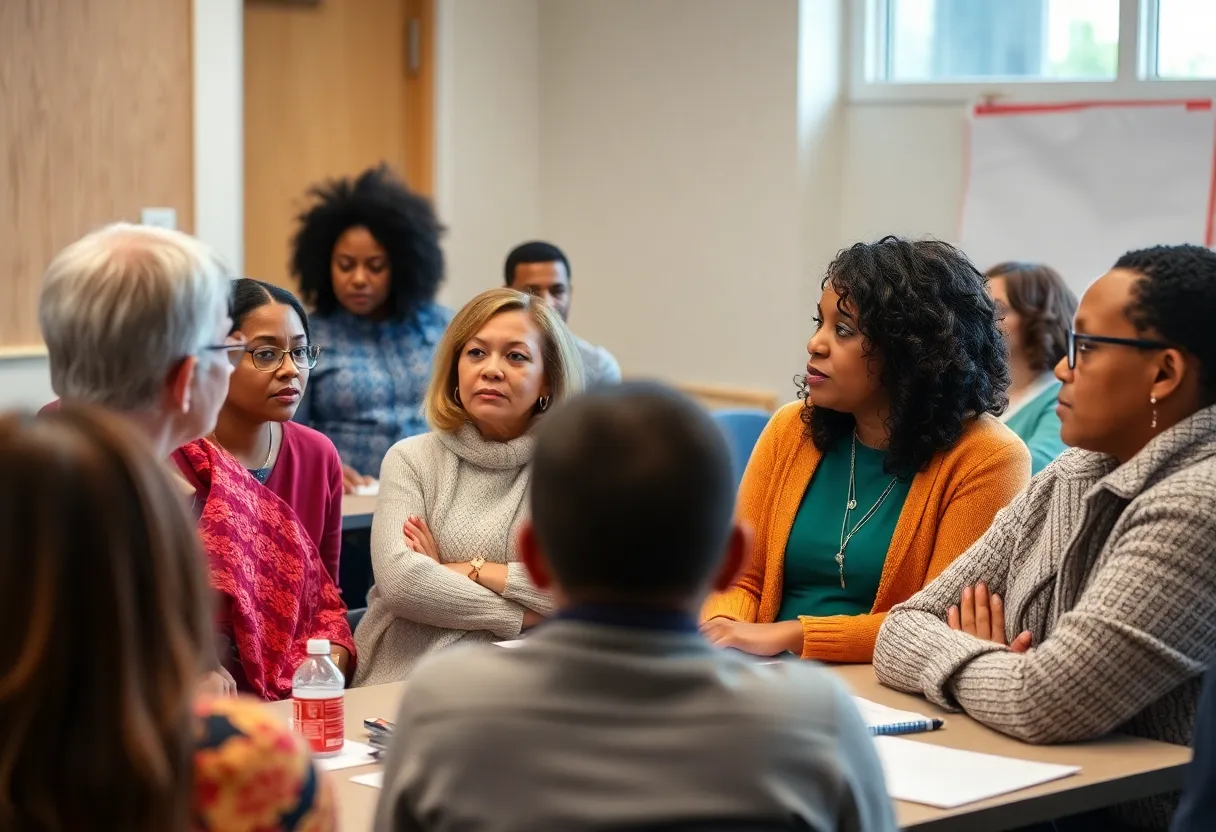News Summary
In Atlanta, advocate Alisha Thomas Searcy emphasizes the need for federal oversight in education to protect students’ rights and ensure quality education amid rising political changes. With the Georgia Promise Scholarship announced, concerns about funding and support for underperforming schools continue. Community collaboration is essential for improving educational outcomes, as discussions on transforming education in Georgia move forward.
Atlanta’s Education Landscape Shifts as Advocates Call for Oversight
In the bustling city of Atlanta, discussions around the future of education are heating up as local advocate Alisha Thomas Searcy steps into the spotlight. After spending an impressive 12 years in the Georgia State House focusing on education, Searcy, who is also a mother of three, brings a personal touch to her activism—one of her children relies on an individualized education plan that hinges on federal support.
Why Federal Oversight Matters
As the political landscape shifts, Searcy emphasizes the need for a solid framework in place within the public education system. She firmly believes that federal oversight is essential to safeguard students’ rights and ensure they receive quality education—something that can be jeopardized if federal involvement diminishes. There are rising concerns regarding calls from the federal government, particularly President Trump’s administration, to scale back the role of the U.S. Department of Education. This has prompted fears among advocates that such moves might undermine students’ access to important educational resources.
Education policy experts, including those from academia, echo her sentiments. While it’s possible to reallocate certain responsibilities to other federal agencies, crucial funding programs like Pell Grants, Title I, and Title IX are firmly established by law and cannot simply vanish without proper legislative action. If the Department of Education faces significant reductions, states may find themselves scrambling to fill the funding gaps, potentially leading to cuts in critical programs.
Keeping Education on the Front Burner
Searcy, having previously served as a school superintendent, underscores that accountability within education is vital and hinges largely on federal supervision. She urges parents and policymakers alike to keep children’s interests at the forefront, particularly stressing that parental empowerment in education matters more than playing the political game. This perspective is crucial as the Georgia Department of Education gears up to set its legislative priorities for 2025, focusing on key discussions surrounding school safety and funding.
The Georgia Promise Scholarship Aims to Help
This conversation comes alongside the Georgia Department of Education’s announcement of schools eligible for the Georgia Promise Scholarship—a program aimed at assisting students from underperforming public schools. The scholarship offers vouchers of up to $6,500 for students attending schools that rank in the bottom 25% performance tier. The list of eligible schools was developed using scores from the Governor’s Office of Student Achievement, which considers several performance metrics.
Over 20 schools across Clayton and Henry counties, along with five in Coweta and Carroll counties, are included in this eligibility list. In particular, Coweta schools that qualify include several elementary schools and one middle school, all designated as Title I due to high low-income enrollment.
Navigating Challenges to Effectiveness
While the Georgia Promise Scholarship has great intentions, it raises questions about the effectiveness of such measures, particularly regarding parental support and economic challenges. The Coweta County School System, acknowledging the obstacles faced by qualifying schools, is committed to providing the necessary resources and support to help improve student performance.
Moreover, community collaboration is recognized as a critical component in enhancing educational outcomes for Coweta students. As schools grapple with their designated performance measures, the emphasis on teamwork between families, educators, and community members is championed as essential for success.
The Road Ahead
As Atlanta and the entire state of Georgia brace for upcoming discussions on education transformation, the advocacy from leaders like Alisha Thomas Searcy shines a spotlight on the need for thoughtful policies and strong support systems. With a future that potentially looks different for public education, the essence of standing up for students’ rights to a quality education remains vital—a connection that Searcy and her supporters apparently won’t take lightly.
Deeper Dive: News & Info About This Topic
HERE Resources
Elon Musk Reshapes Government Structure with New Initiative
Trump Signs Executive Order for Federal Workforce Reduction
Education in Atlanta Faces Uncertain Future
Trump Signs Executive Orders to Transform Education
Trump Dismisses 17 Inspectors General in Controversial Move
Additional Resources
- 11 Alive: Concerns Mount Over Future of Department of Education Dismantling
- Encyclopedia Britannica: Education
- Emanuel County Live: Georgia Department of Education Recognizes Emanuel County Schools
- Google Search: Georgia Department of Education
- Grice Connect: Georgia Department of Education Announces 2025 Legislative Priorities
- Google News: Georgia Promise Scholarship
- The Citizen: Georgia Dept of Ed Identifies Five Underperforming Schools in Coweta
- Encyclopedia Britannica: School
- Atlanta News First: Georgia Educators React to President Trump’s Proposal
- Google Scholar: Georgia Education






